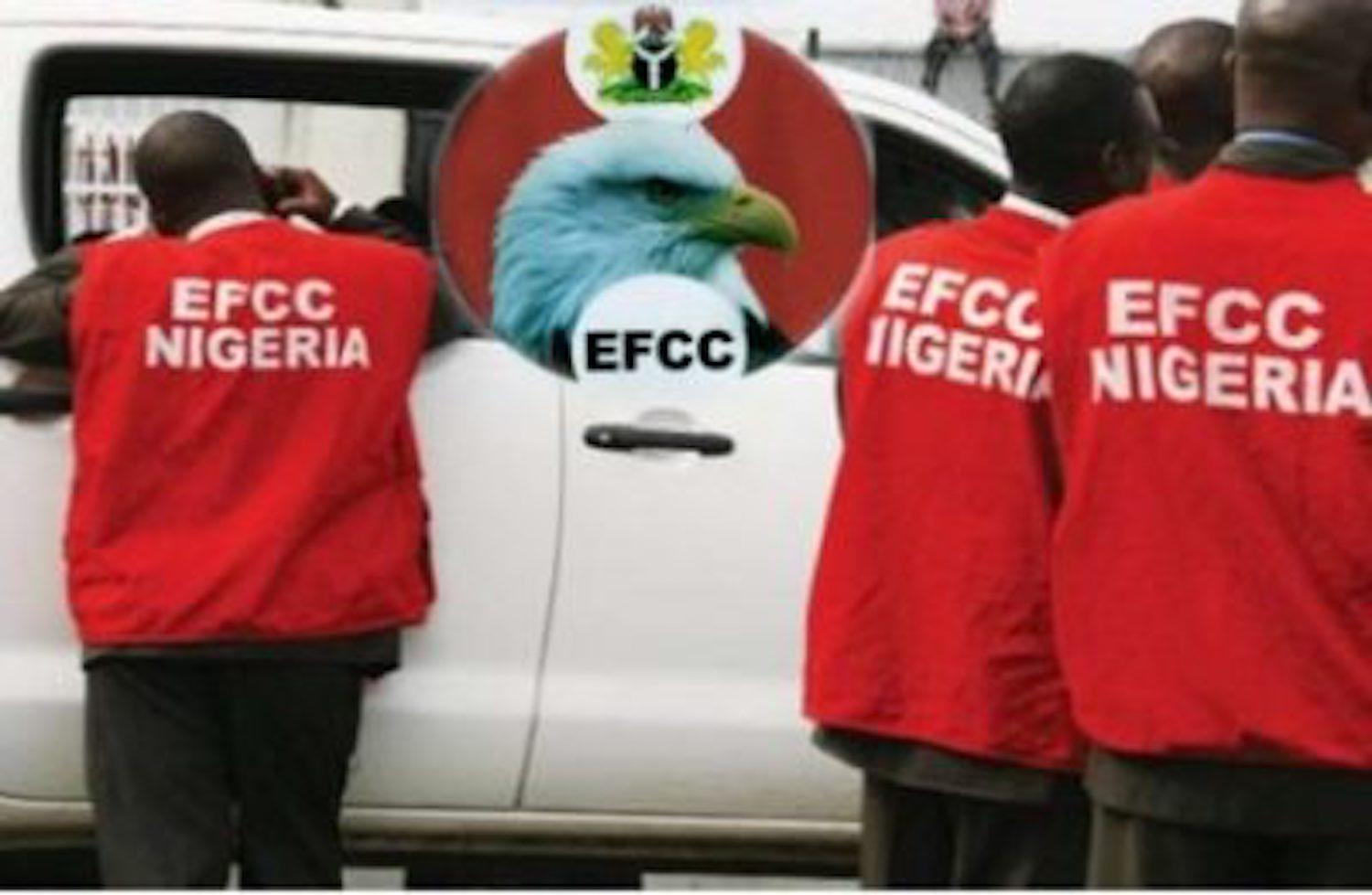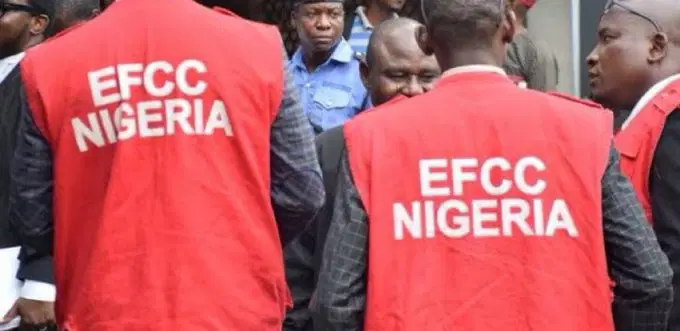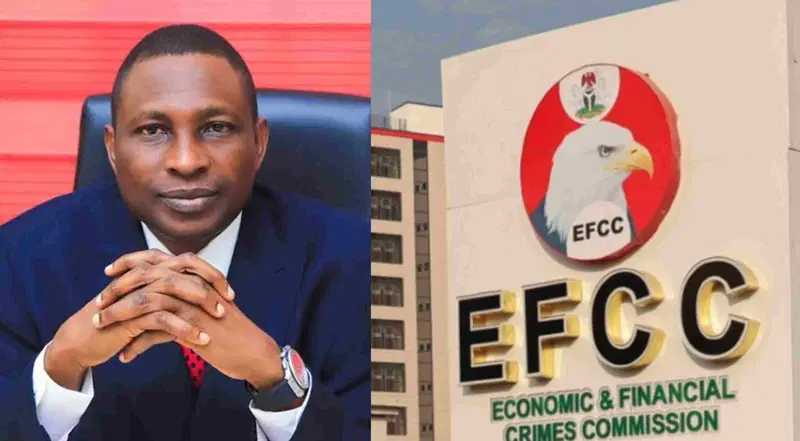EFCC Arraigns Former FCMB GMD, Two Others Over Alleged N12bn Fraud, Money Laundering
Lagos, Nigeria – The Economic and Financial Crimes Commission (EFCC) on Tuesday, January 3, 2023, brought before the Federal High Court sitting in Lagos, the former Group Managing Director of First City Monument Bank Plc (FCMB), Mr. Nnamdi Okonkwo, alongside two other former executives of the bank. The trio faces a comprehensive 14-count charge bordering on conspiracy, theft, and money laundering, specifically involving an alleged sum of N12 billion.
The prosecution’s case, as presented by the EFCC, posits that Okonkwo, along with Ikechukwu Oguine, identified as a former Divisional Head of the bank, and Obianwa Chukwu, a former Head of Corporate Banking and Acting Managing Director, allegedly conspired among themselves to steal and launder the significant sum. The money is purportedly linked to a customer account belonging to Northern Belt Oil and Gas Limited, a company associated with businessman Benedict Peters.
According to the charge sheet read out in court by the prosecution counsel, the defendants are accused of engaging in illicit financial activities spanning from 2014 up to 2022. A key element of the allegations revolves around the purported unauthorized conversion and transfer of funds from the specified customer account, without the requisite authorization from the account holder or the bank’s due processes. The charges detail how the defendants allegedly leveraged their senior positions within the bank to facilitate these transactions, effectively circumventing internal controls designed to prevent such breaches.
One of the central accusations in the counts relates to money laundering, which involves the concealment of the origin of illegally obtained money, typically by means of transfers involving foreign banks or legitimate businesses. The EFCC alleges that the N12 billion traced from the Northern Belt Oil and Gas account was subsequently moved through various transactions and channels orchestrated by the defendants, allegedly to disguise its illicit source and ownership. This aspect of the charge highlights the complexity of the case, suggesting intent not only to steal but also to clean the funds through sophisticated financial maneuvers.
During the court session presided over by Justice Nicholas Oweibo, the charges were read out to the accused. One after the other, Mr. Nnamdi Okonkwo, Mr. Ikechukwu Oguine, and Mr. Obianwa Chukwu each entered a plea of “not guilty” to all 14 counts preferred against them by the anti-graft agency. Their plea signifies their formal challenge to the allegations and sets the stage for a full trial where the prosecution will be required to present evidence to prove their case beyond a reasonable doubt.
Following the arraignment and the defendants’ pleas, the defense counsel representing the accused immediately moved separate applications for bail. These applications are a standard legal procedure, seeking the temporary release of the defendants from custody pending the determination of the case. The defense team argued that the defendants were respectable members of society, not flight risks, and were willing to adhere to any conditions set by the court to guarantee their appearance for trial. They emphasized the principle of presumed innocence until proven guilty and argued that keeping them in custody would impede their ability to effectively prepare for their defense.
However, the prosecution vehemently opposed the bail applications. The EFCC counsel argued that given the gravity of the alleged offenses, the enormous sum of money involved (N12 billion), and the positions of influence previously held by the defendants, there was a significant risk that they might abscond from the country if granted bail. Furthermore, the prosecution expressed concerns that releasing the defendants could potentially interfere with ongoing investigations or influence potential witnesses in the case. They contended that the severity of the potential punishment upon conviction warranted their remand in custody to ensure they face trial.
After hearing arguments from both the defense and the prosecution regarding the bail applications, Justice Oweibo reserved his ruling on the bail requests. He stated that he would need time to consider the arguments and the specifics of the case before making a determination. In the interim, Justice Oweibo ordered that the three defendants be remanded in the custody of the Economic and Financial Crimes Commission.
The judge subsequently adjourned the proceedings to Friday, January 6, 2023, for the ruling on the bail applications. Should bail be granted, the court will outline the conditions under which the defendants will be released. If bail is denied, they will remain in custody, likely at the EFCC detention facility, until further court orders.
Furthermore, Justice Oweibo fixed Tuesday, January 24, 2023, as the date for the commencement of the substantive trial. On this date, the prosecution is expected to begin presenting its evidence and calling witnesses to support the allegations contained in the 14-count charge. The trial process is typically lengthy in complex financial crime cases, involving extensive documentation and testimonies.
The arraignment of such high-ranking former bank executives underscores the commitment of the EFCC to pursue allegations of financial impropriety, regardless of the status or influence of the individuals involved. It sends a strong signal regarding accountability within the financial sector, an area critical to the nation’s economic stability and international reputation. The alleged sum of N12 billion represents a substantial amount, highlighting the potential magnitude of the financial crime being investigated.
This case also brings into focus the critical importance of corporate governance and robust internal controls within financial institutions. Banks are custodians of public trust and significant wealth, and any alleged breach of this trust by senior management can have far-reaching consequences, not only for the individuals and the institution involved but also for the broader financial system. Regulatory bodies like the Central Bank of Nigeria (CBN) maintain strict guidelines precisely to prevent such occurrences, and cases like this highlight the challenges in maintaining absolute adherence, especially when faced with alleged internal collusion at senior levels.
The legal battle ahead is expected to be closely watched by the public, financial sector stakeholders, and anti-corruption advocates. The defendants, armed with their legal teams, will have the opportunity to present their defense, challenging the evidence brought forth by the EFCC and asserting their innocence. The Nigerian justice system guarantees every accused person the right to a fair hearing, and this case will unfold through the rigorous processes of examination and cross-examination of witnesses and evidence presented by both sides.
The principle of the rule of law dictates that everyone is subject to the law, regardless of their position or wealth. This case serves as a reminder that the fight against financial crime requires diligent investigation and prosecution.
“No man is above the law, and no man is below it.” – Theodore Roosevelt
This quotation resonates deeply with the context of this case, where individuals who once held positions of considerable power and trust within a major financial institution are now standing trial before the law to answer for alleged criminal conduct. It reinforces the tenet that the justice system, ideally, operates without fear or favour, holding all citizens accountable for their actions.
As the case progresses to the bail hearing and subsequently to trial, the EFCC will be tasked with the complex challenge of presenting compelling evidence in court to substantiate each of the 14 counts of conspiracy, theft, and money laundering against the former bank executives. The defense, in turn, will vigorously challenge this evidence, aiming to cast doubt on the prosecution’s narrative and establish the innocence of their clients. The outcome will ultimately rest on the evidence presented and the court’s interpretation of the law.
For now, the three former bank executives remain in EFCC custody, awaiting the court’s decision on their bail applications and the formal commencement of a trial that could potentially reveal more details about the alleged N12 billion fraud and its implications for the individuals and the financial institution involved. The justice system’s wheels have begun to turn in this significant case.




